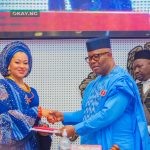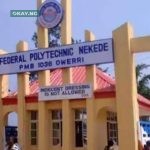A federal high court in Lagos has awarded N72.2 billion in damages to Honeywell Flour Mills (HFMP) Plc following an eight-year legal dispute with Ecobank Nigeria.
Justice Mohammed Liman delivered the judgment on Tuesday, granting all the reliefs sought by Honeywell regarding the freezing of its accounts by the bank in November 2015.
Ecobank had obtained an ex parte order to freeze Honeywell’s accounts as part of its attempt to wind up the company due to its liabilities to the bank.
The court granted the ex parte order on the condition that Ecobank would indemnify Honeywell against any losses incurred.
However, the Court of Appeal modified the order in December 2015. Dissatisfied with the outcome, Ecobank pursued the case to the Supreme Court, where it also faced defeat.
Consequently, Honeywell approached the high court to claim N72.2 billion in damages against Ecobank for the losses it suffered during the freezing order’s enforcement on its accounts.
The claims put forward by HFMP encompass various losses, including those resulting from foreign exchange devaluation, interest on unutilized cash balances, loss of revenue, and aggravated and exemplary damages.
In his judgment, Justice Liman granted all the reliefs sought by Honeywell, affirming the company’s entitlement to the claimed amount.
He stated, “The plaintiff was denied the use of funds in their account based on the ex parte order granted in favor of the defendant. Therefore, it is my firm view that the plaintiff (Honeywell) is entitled to the amount claimed… The arguments presented by the defendant in their written address are thus unacceptable as the document’s contents serve as the best evidence and speak for themselves.”
Justice Liman expressed disapproval of Ecobank’s legal representative, stating, “The purpose of an undertaking to pay damages has been held in numerous cases to indemnify the party for the losses they may suffer based on an ex parte order. Note that Rule 4 of the Winding Up Rules stipulates that all applications affecting the rights of parties in a winding-up proceeding must be made on notice.”
He further clarified, “The provisions of the winding-up rules are clear and unambiguous. The defendant cannot claim ignorance of this provision, as ignorance of the law is no excuse, and it is even more inexcusable if committed by a lawyer. The ex parte application was, therefore, made ultra vires.”









